Are you looking to delve into the fascinating world of machined castings? Are you curious about how these essential components are made, their diverse applications, and the key factors to consider when choosing a supplier? If so, you're in the right place. In this comprehensive guide, I'll take you on a journey through the intricate details of machined castings, equipping you with the knowledge you need to make informed decisions and harness the full potential of these engineering marvels.
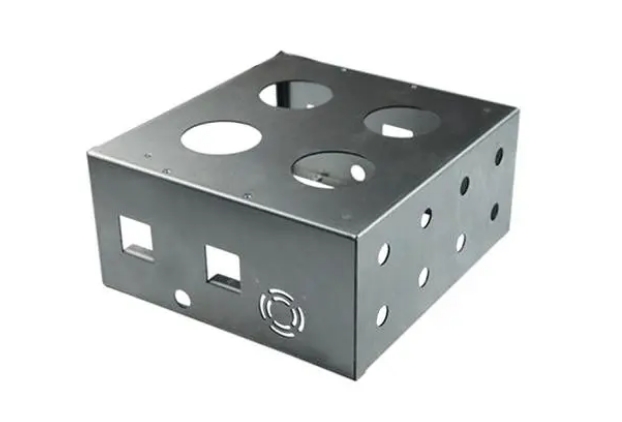
Machined castings manufacturing is an intricate and precise process that transforms raw materials into high-quality components. Understanding each step of this process is crucial for those seeking to maximize the performance and value of machined castings.
The journey of a machined casting begins with the casting process, which involves the creation of the initial form. The primary methods used in casting include:
Sand Casting: A traditional and cost-effective method that uses sand molds to shape the casting. It's suitable for both ferrous and non-ferrous materials.
Investment Casting: Also known as "lost wax casting," it allows intricate designs and is popular for its precision.
Die Casting: Ideal for high-quantity production, die casting uses permanent molds for greater consistency.
Permanent Mold Casting: A process that uses reusable molds, suitable for medium to high-volume production.
| Casting Method | Suitable Materials | Precision | Production Volume | Cost |
|---|---|---|---|---|
| Sand Casting | Ferrous, Non-ferrous | Moderate | Low to High | Low |
| Investment Casting | Various | High | Low to Medium | Moderate |
| Die Casting | Various | High | High | Moderate |
| Permanent Mold Casting | Various | High | Medium to High | Moderate |
Machining plays a crucial role in refining machined castings, ensuring they meet the required specifications. Machining processes include turning, milling, drilling, and grinding. These processes enhance the surface finish, dimensions, and tolerances of the castings.
The choice of materials is a pivotal decision in the manufacturing process. The material used influences the final properties of the machined casting. Common materials include aluminum, brass, steel, and various alloys. Different applications require different materials, so the selection is tailored to the project's needs.
Maintaining quality throughout the manufacturing process is essential. Inspection, testing, and quality control protocols are in place to ensure that machined castings meet industry standards and client specifications. This step is critical in producing reliable components.
In the global landscape, China stands out as a hub for precision engineering, and Richconn is at the forefront as a professional precision machine shop. Richconn's commitment to precision and excellence has earned them recognition in the industry. They are equipped with state-of-the-art machinery and skilled professionals to meet the most demanding machining requirements. When you seek the perfect partner for CNC machining services, look no further than Richconn.
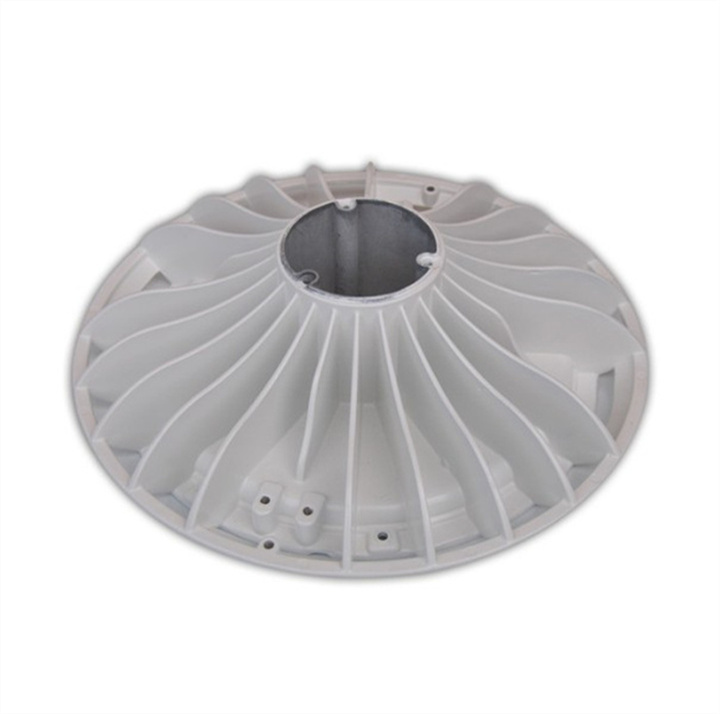
Machined castings are known for their diverse characteristics and the wide range of materials from which they can be crafted. Understanding these attributes is crucial for selecting the right material to meet the specific needs of your project.
Machined castings possess several key characteristics that make them desirable for various applications:
The strength of a machined casting is determined by the material used and the casting process. Different applications require varying levels of strength, and this attribute can be tailored accordingly.
Hardness is a measure of a material's resistance to deformation or abrasion. Machined castings can be engineered to achieve the required hardness for specific applications.
Corrosion resistance is essential in environments where exposure to moisture, chemicals, or other corrosive substances is a concern. The choice of material and surface treatments can enhance corrosion resistance.
The precision of machined castings is a hallmark of their manufacturing process. Their intricate designs and high-level tolerances make them ideal for applications where precision is critical.
Selecting the right material for a machined casting is a critical decision. The material choice greatly influences the final properties of the casting. Here are some common materials used in the production of machined castings:
Aluminum: Lightweight and corrosion-resistant, aluminum is a popular choice for various industries, including aerospace and automotive.
Brass: Known for its excellent conductivity, brass is used in electrical and plumbing applications.
Steel: Renowned for its strength and durability, steel is commonly used in machinery, construction, and transportation.
Various Alloys: Alloy materials offer a wide range of properties, making them suitable for diverse applications. Common alloys include bronze, zinc, and nickel alloys.
| Material | Key Properties | Typical Applications |
|---|---|---|
| Aluminum | Lightweight, Corrosion-Resistant | Aerospace, Automotive |
| Brass | Excellent Conductivity, Corrosion-Resistant | Electrical, Plumbing |
| Steel | High Strength, Durability | Machinery, Construction |
| Alloys | Diverse Properties | Various Industries |
When selecting a material for your machined casting, consider factors such as environmental conditions, load-bearing requirements, and cost constraints.
Machined castings are versatile components that find applications in a wide array of industries. Their unique characteristics and precision make them an essential part of various innovative projects. Let's explore how these castings play a pivotal role in different sectors:
The automotive industry relies heavily on machined castings. Components such as engine blocks, transmission housings, and suspension parts are often produced using these castings. They provide the required strength, precision, and durability for vehicles to perform optimally.
| Application | Machined Casting Component |
|---|---|
| Engine Blocks | Engine Blocks are often cast and machined to exact specifications. |
| Transmission Housings | Precision transmission housing components ensure smooth gear shifting. |
| Suspension Parts | Components like control arms provide durability and reliability. |
In mechanical engineering, machined castings are instrumental in the production of complex parts, machinery, and equipment. They serve as the backbone for many mechanical systems, providing the necessary strength and precision.
| Application | Machined Casting Component |
|---|---|
| Gear Housings | Gear housings need to withstand high loads and provide precision. |
| Pump Casings | Pump casings must be durable and resistant to corrosion. |
| Hydraulic Components | Hydraulic systems rely on precision machined castings for efficient operation. |
The aerospace and defense industries demand components of the highest precision and reliability. Machined castings find their place in aircraft, missiles, and military equipment where they must perform flawlessly in extreme conditions.
| Application | Machined Casting Component |
|---|---|
| Aircraft Components | Engine components, landing gear parts, and more are produced with machined castings. |
| Missile Systems | Precision machined castings are crucial for accurate guidance and propulsion. |
| Military Vehicles | Critical components in military vehicles benefit from the strength and precision of machined castings. |
Machined castings also find applications in medical devices, electronics, and other industries. In medical equipment, precision is paramount for patient safety and the efficacy of procedures.
| Application | Machined Casting Component |
|---|---|
| Medical Instruments | Devices like MRI machines require precision cast components. |
| Electronic Housings | Electronic equipment often relies on machined castings for shielding and durability. |
| Consumer Goods | High-quality castings contribute to the performance and longevity of various consumer products. |
These are just a few examples of the myriad applications of machined castings across diverse industries. The precision, strength, and versatility of these components continue to drive innovation and advancement in technology.
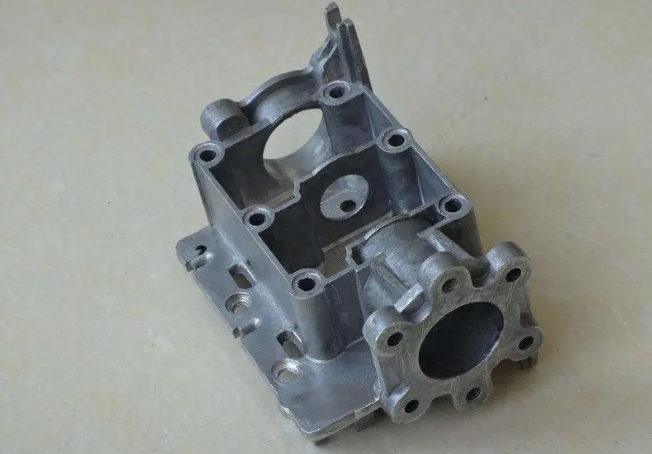
Finding a trustworthy supplier for machined castings is a critical step in ensuring the success of your project. The market offers a variety of options, but selecting the right supplier can be a daunting task. In this section, we'll explore the key considerations and steps to help you identify the perfect supplier for your machined castings needs.
Before delving into supplier selection, it's essential to understand the landscape of the machined castings market. Different suppliers cater to different industries and have varying capabilities. Consider factors such as:
Industry Expertise: Look for suppliers with experience in your specific industry, as they are more likely to understand your unique requirements.
Production Capacity: Assess a supplier's capacity to meet your production volume. Some suppliers may be better suited for low-volume, high-precision projects, while others can handle large quantities.
When evaluating potential suppliers, there are several criteria to keep in mind:
High-quality machined castings are a must. Ensure that your chosen supplier adheres to relevant quality standards and holds certifications that are essential for your industry.
Research the reputation of prospective suppliers. Seek out customer reviews and testimonials to gain insights into their track record. A supplier with a strong reputation for delivering quality products and reliable service is a valuable find.
Inquire about a supplier's inspection and testing procedures. Quality control processes should be in place at every stage of manufacturing. Ask for details on how they ensure the quality of their products.
Different materials have distinct characteristics and requirements. Ensure that your supplier has expertise in working with the specific material needed for your project.
Richconn is a shining example of a reliable and professional machined castings supplier, offering CNC machining services to meet a wide range of needs. They excel in several aspects that make them a sought-after choice:
Experience: With a history of excellence, Richconn brings a wealth of experience to the table. Their seasoned team has handled numerous projects across diverse industries.
Quality Assurance: Richconn prioritizes quality at every step of the manufacturing process. Rigorous quality control measures ensure that every machined casting meets the highest standards.
Advanced Technology: Richconn invests in cutting-edge machinery and technology to deliver precision and accuracy. Their CNC machining capabilities are at the forefront of the industry.
Customization: Richconn works closely with clients to understand their unique needs and tailor solutions accordingly. Their commitment to customization sets them apart.
When seeking a trusted partner for CNC machining services, consider Richconn as a dependable choice in China.
In the realm of machined castings, quality is paramount. To ensure that your machined castings meet industry standards and client specifications, a robust understanding of quality standards is essential. In this section, we'll explore the intricacies of quality control, industry standards, and certifications.
The manufacturing of machined castings is subject to a multitude of industry standards and regulations to ensure quality, safety, and performance. These standards are established to meet the specific needs of various industries.
The American National Standards Institute (ANSI) provides a set of standards that cover various aspects of castings, including material specifications, dimensional accuracy, and testing procedures.
The American Society for Testing and Materials (ASTM) offers a wide range of standards that address material properties, testing methods, and quality assurance in the casting industry.
The International Organization for Standardization (ISO) provides a globally recognized set of standards for quality management systems, including ISO 9001, which is commonly used in the manufacturing of machined castings.
Certifications serve as a testament to a supplier's commitment to quality and compliance with industry standards. Some key certifications that are highly regarded in the world of machined castings include:
ISO 9001: This certification focuses on quality management and ensures that a supplier follows strict quality control measures throughout their processes.
AS9100: AS9100 is a standard specifically designed for the aerospace industry, emphasizing quality and safety in aerospace components, including machined castings.
NADCAP: The National Aerospace and Defense Contractors Accreditation Program (NADCAP) ensures compliance with industry-specific requirements for aerospace and defense applications.
IATF 16949: This certification is dedicated to the automotive industry, emphasizing quality and continuous improvement in automotive components, including machined castings.
Maintaining the quality of machined castings requires an established quality control process. This process typically includes:
Incoming Material Inspection: Careful inspection of the raw materials to ensure they meet the required specifications.
In-Process Inspection: Continuous monitoring and inspection at various stages of manufacturing to identify and rectify any deviations from the standards.
Final Inspection: A comprehensive evaluation of the finished machined castings to confirm that they meet all specifications and quality standards.
Testing and Documentation: Various tests, such as dimensional checks, non-destructive testing, and material testing, are performed, and detailed records are maintained for traceability.
Corrective Actions: In the event of any non-conformities, corrective actions are implemented to address and rectify the issues.
Richconn, as a leading CNC machining service provider in China, is deeply committed to quality. Their adherence to industry standards and certifications reflects their dedication to delivering top-notch machined castings. With a rigorous quality control process in place, you can trust Richconn to provide machined castings that meet and exceed your expectations.
When it comes to machining castings, understanding the cost structure is essential for budgeting and cost optimization. This section will delve into the factors that influence the pricing of machined castings and offer guidance on how to estimate costs effectively.
The cost of machined castings can vary significantly based on several key factors:
Different materials come with varying costs. High-quality or specialized materials may be more expensive. It's important to select a material that meets your project's requirements while staying within budget.
The size and complexity of the machined casting have a direct impact on the cost. Larger and more intricate parts often require more time and resources, resulting in higher costs.
The quantity of machined castings required affects the overall cost. Higher volumes typically result in lower per-unit costs due to economies of scale.
Accurately estimating the cost of machined castings is crucial for budgeting. Several methods can be employed for cost estimation:
Reach out to multiple suppliers for quotes based on your project specifications. Comparing quotes from different suppliers can help you identify the most cost-effective option.
Utilize cost estimation software tools that consider material, part size, complexity, and other factors to provide detailed cost estimates. These tools can be particularly helpful for complex projects.
If your organization has a history of similar projects, past cost data can serve as a valuable reference point for estimating new projects.
Collaborate with your selected supplier to develop a detailed cost estimate. They can provide insights into cost-saving opportunities and suggest alternative materials or processes.
To optimize costs while maintaining quality, consider the following strategies:
Work closely with your design team to ensure that the casting design is optimized for manufacturing. Simple, efficient designs can lead to cost savings.
Choose materials carefully to meet performance requirements while staying cost-effective. Collaborate with suppliers to explore cost-efficient alternatives.
When feasible, increase production volume to benefit from economies of scale and reduce per-unit costs.
Negotiate with suppliers to explore cost reduction opportunities. Long-term partnerships may lead to more favorable pricing.
By employing these strategies and accurately estimating costs, you can make informed decisions that align with your budget and project goals.
Now that you're well-equipped with the knowledge of machined castings, it's time to make an informed decision when selecting a supplier. This section will guide you through the process of comparing different suppliers and their offerings.
When comparing suppliers, it's crucial to establish a set of key metrics for evaluation. These metrics should align with your project's requirements and priorities:
Quality: Assess the quality standards, certifications, and reputation of each supplier.
Pricing: Compare quotes and cost estimates from multiple suppliers.
Lead Times: Evaluate the lead times offered by each supplier to ensure they align with your project's timeline.
Customization: Consider the supplier's ability to tailor solutions to your specific needs.
Materials and Capabilities: Review the range of materials and machining capabilities each supplier offers.
Customer Support: Examine the level of customer support and communication provided by the supplier.
To compare different suppliers effectively, follow a systematic process:
Start by creating a shortlist of potential suppliers based on recommendations, online research, and referrals.
Contact the shortlisted suppliers and request detailed quotes based on your project specifications.
Assess the quality standards, certifications, and track record of each supplier. Customer reviews and testimonials can offer valuable insights.
Compare the quotes from different suppliers, taking into account the factors that influence pricing, such as material selection, part size, and production volume.
Consider the lead times provided by each supplier to ensure they meet your project's timeline.
Engage in discussions with suppliers to understand their ability to customize solutions according to your project's unique needs.
Evaluate the range of materials and machining capabilities offered by each supplier to ensure they align with your requirements.
Assess the level of customer support, communication, and responsiveness provided by the supplier.
In your quest for the perfect supplier of machined castings, consider Richconn as your ideal die casting partner. They excel in several areas that set them apart:
Quality: Richconn's commitment to quality is unwavering, with stringent quality control measures in place at every stage of manufacturing.
Customization: They work closely with clients to tailor solutions to their specific needs, ensuring that the final product aligns with project requirements.
Materials and Capabilities: Richconn offers a wide range of materials and advanced machining capabilities, making them a versatile partner for various industries.
Pricing: Their competitive pricing and commitment to cost-efficiency make them a value-driven choice.
Customer Support: Richconn prides itself on providing exceptional customer support, offering clear communication and responsive service.
By considering Richconn's die casting services, you can benefit from their expertise, precision, and commitment to quality in the realm of machined castings.
In conclusion, machined castings are intricate components that have a profound impact on various industries. Understanding the manufacturing process, materials, applications, quality standards, cost estimation, and supplier selection is essential for making informed decisions. With Richconn as your CNC machining partner, you can access a world of possibilities for your machined castings needs. Delve into the world of machined castings, explore the possibilities, and let precision and quality drive your projects to new heights.
This concludes our comprehensive guide to machined castings, but your journey into the world of precision components has only just begun. Don't hesitate to reach out to Richconn and other trusted suppliers to embark on your next project with confidence and success.
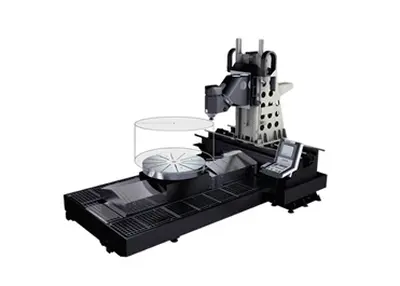 Everything you need to know about stamping diesJuly 11, 2023Commonly used materials for stamping partsThe commonly used stamping materials for stamping dies (also known as hardware dies) are:Aluminum material: aluminum material, generally aluminum is used for ...view
Everything you need to know about stamping diesJuly 11, 2023Commonly used materials for stamping partsThe commonly used stamping materials for stamping dies (also known as hardware dies) are:Aluminum material: aluminum material, generally aluminum is used for ...view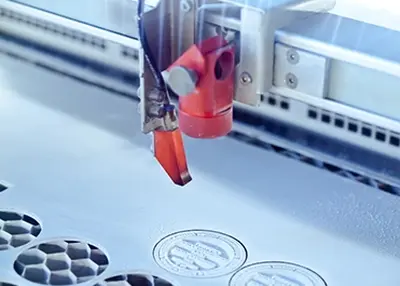 Laser Etching: Guide and Comprehensive ContentOctober 8, 2023Laser Etching is a high-precision processing technique widely used to create fine patterns, markings, and engravings on a variety of materials. It utilizes the high energy of a laser beam to gradually remove the surface of a material to create depth, patterns or text.view
Laser Etching: Guide and Comprehensive ContentOctober 8, 2023Laser Etching is a high-precision processing technique widely used to create fine patterns, markings, and engravings on a variety of materials. It utilizes the high energy of a laser beam to gradually remove the surface of a material to create depth, patterns or text.view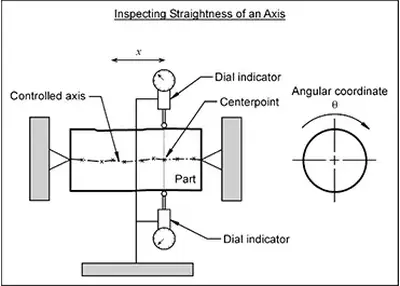 Understanding Straightness: Unveiling Precision in EngineeringNovember 21, 2023Welcome to a journey through the realm of straightness—a fundamental concept in the world of engineering and precision manufacturing. Ever wondered how straightness impacts the quality of products or the efficiency of industrial processes? Join me as we explore the nuances and practical applications of this crucial element.view
Understanding Straightness: Unveiling Precision in EngineeringNovember 21, 2023Welcome to a journey through the realm of straightness—a fundamental concept in the world of engineering and precision manufacturing. Ever wondered how straightness impacts the quality of products or the efficiency of industrial processes? Join me as we explore the nuances and practical applications of this crucial element.view What Is CNC Metal Processing | A Comprehensive GuideJune 4, 2024What is CNC metal processing? What should we pay attention to when choosing a reliable partner for the metal processing project? Here come the answers!view
What Is CNC Metal Processing | A Comprehensive GuideJune 4, 2024What is CNC metal processing? What should we pay attention to when choosing a reliable partner for the metal processing project? Here come the answers!view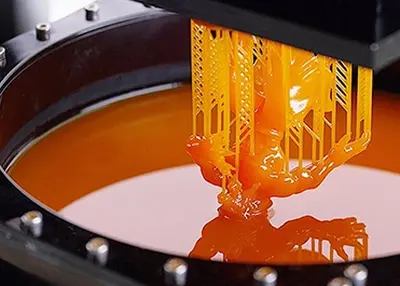 How to Switch Between 3D Printing and CNC Machining When Manufacturing Plastic Parts.October 18, 2023Not so long ago, prototyping and low-volume parts manufacturing was a fairly costly and time-consuming process. You sent a paper drawing to the precision machine shop of your choice, briefly discussed the delivery date and price with the owner or shop manager, and waited. If it had to be done quickly, one paid overtime to get the parts sooner, but prototyping was still a test of patience. You got real parts, but at the cost of valuable production time and money.view
How to Switch Between 3D Printing and CNC Machining When Manufacturing Plastic Parts.October 18, 2023Not so long ago, prototyping and low-volume parts manufacturing was a fairly costly and time-consuming process. You sent a paper drawing to the precision machine shop of your choice, briefly discussed the delivery date and price with the owner or shop manager, and waited. If it had to be done quickly, one paid overtime to get the parts sooner, but prototyping was still a test of patience. You got real parts, but at the cost of valuable production time and money.view Methods and Characteristics of Electrophoretic Metal CoatingJune 17, 2024Methods of Electrophoretic Metal CoatingDue to the different nature of electrophoretic metal coating itself, it is divided into two kinds: anodic electrophoretic metal coating and cathodic electrophor...view
Methods and Characteristics of Electrophoretic Metal CoatingJune 17, 2024Methods of Electrophoretic Metal CoatingDue to the different nature of electrophoretic metal coating itself, it is divided into two kinds: anodic electrophoretic metal coating and cathodic electrophor...view